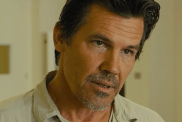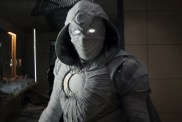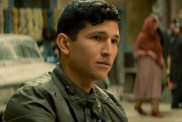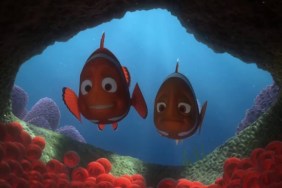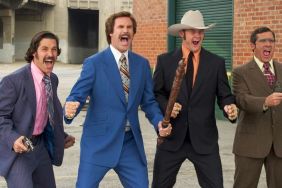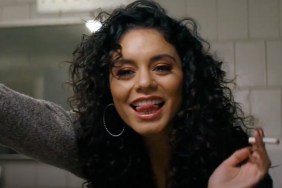Some might think of Judd Apatow as the center of the Comedy Universe right now, the Don Corleone of the Comedy Mafia, but the other guy who has been equally pivotal in this wave of insanely good comedy is Adam McKay.
Having worked with Will Ferrell since their days on “Saturday Night Live,” where McKay was the show’s head writer for three years, the duo went on to make Anchorman: The Legend of Ron Burgundy and Talladega Nights: The Ballad of Ricky Bobby, two hugely successful (and quotable) comedies. Another huge turning point for them was the launch of their comedy website Funny or Die, which has successfully replaced the comedy clubs as a way of getting new comedy and comedians out to a larger audience worldwide. (McKay’s daughter Pearl kicked the site off with the hilarious “The Landlord” short.)
Their third movie together is Step Brothers, which also reteams them with John C. Reilly from “Talladega Nights.” It might be their funniest movie yet, taking the simple premise of two 40-year-old guys who live with their single parents and have to get along once they become a family, and turning it into something that goes well beyond where these comedies tend to go. Part of that might be the film’s R-rating which allowed McKay, Ferrell and Reilly to go balls-out (quite literally) when it came to the jokes.
When you think of a comedy writer, you might imagine a small mousy guy working in the backroom, writing the jokes that the stars take all the credit for, but McKay is nothing like that, a large imposing hulk of a man who you might not immediately suspect is a writer. Even so, there are very few people more knowledgeable about the science and physics of comedy then McKay, who becomes the third or fourth filmmaker we’ve talked to in the last year who’s worked on a movie produced by Judd Apatow. To be fair, McKay was there before the rest of the world started noticing “the Apatow Machine” and he’s quickly creating his own comedy legacy with Ferrell and Gary Sanchez Productions, their company.
ComingSoon.net talked with McKay about the new comedy, his system for figuring out what’s funny and how his methods are similar or different from Apatow’s. It’s an interview that anyone who wants to get into comedy (on either side of the camera) should read.
ComingSoon.net: I really liked the movie. The movie is more mature and intelligent than your past work with Will Ferrell, which is ironic, since it’s essentially about older guys acting like kids. Did you guys realize that while you were making it?
Adam McKay: We always get that with “Anchorman” and “Talladega.” You come in with the same knock of it’s the stupid comedy, but the inspiration for us is “The Simpsons” which I think it mastered smart, dumb comedy. Like Homer Simpson is so brilliantly stupid, and people think, “Oh, he’s dumb,” so it’s dumb humor. Or Mike Judge with “Beavis and Butt-Head” which are just brilliantly satirical characters or “Idiocracy,” which is one of my favorite movies. Everyone thought that was a dumb movie, but it’s about stupidity. So we kind of get that with each movie and this is sort of what we do. Think of a broken scenario and play it out as specifically and hopefully as inventively idiotic as we can. So yeah, people are always like, “Oh yeah, it’s kind of smart, even though it’s dumb,” so that’s the goal hopefully. You never know if that works or not until you put the movie up, but that is what we’re attempting to do, but I’m glad you liked it.
CS: You have so many jokes in this, you do so many on the set and so many you write beforehand, so how do you know which jokes work before cutting it together? Is it when the crew is cracking up while shooting, is that when you know something’s funny?
McKay: No, in fact I’ve gotta tell ya I’m suspicious of scenes the crew laughs at just because it’s all about context. Literally, the three scenes the crew laughed the hardest at, none of them are in the movie. It’s not because the crew has bad taste–the crew has great taste–it’s just that once you put it in the context of the story, that influences how it plays. A lot of times, a seemingly mediocre scene will suddenly jump through the roof because it’s playing in the right spot in the movie. We had a scene with John C. Reilly and Kathryn Hahn where they’re having sex in the room next door to the Christmas dinner going on, and they end up busting through the door, but he’s behind her in such a way that it doesn’t look like they’re having sex; he’s kind of just standing behind her. So he’s literally inside her while talking to the whole family at the Christmas dinner table. I said, “This is the funniest scene we’ve ever shot. This is going to blow the roof off” but where it ended up falling in the movie, you just come off a murderer’s row of three giant comedy pieces, so the crowd was exhausted. It was still funny enough that it got laughs, but it exhausted the audience at that point so we had to take it out.
CS: I was wondering how the crew is able to stifle the laugher while making a movie like this, right until the cameras stop rolling.
McKay: I gotta tell ya, our cameraman… several takes, our camera man you could see the camera go like this. (shakes hands) Yeah, it was a little bit of a problem on this one. I don’t blame him, but it’s just there was so much improv, so always the best take is the one where they most surprise you so that’s the one we go to cut in, and every time there’s a little jiggle.

CS: This is definitely a high concept premise that I know you three came up with together, but once you figure that out, do you and Will hash out the story before worrying about the jokes or do you have jokes you come up with along the way and just fit them in? What’s the process?
McKay: Yeah, the idea right away when you hear a premise for a movie or you think of a premise, there’s right away seven jokes that jump out at you immediately. You right away know a certain attitude; you right away know, “Oh, we have to do this.” So there’s five or six first thought ideas you have, and what we’ll always do is we’ll just sit around for three or four days and write down every single thing we want to see in this specific movie or any movie that we just think it would be cool to see. What do you want these characters to do? It doesn’t make any sense with story at all and by the time we’re done we have like a twenty-five page document–if you can respect it enough to call it that. Then we go through it and start circling the ones that resonate for us, and then we’ll go put the story outline together. At that point, let’s say there are thirty things we want to see in the movie, certain ones just have to fall out because of the story, but usually like about fourteen or fifteen of them hang in there and will actually take the story on a little digressive turn to even make room for some of these ideas like the sleepwalking. We just loved that idea. We just thought like we’d never seen anyone play with this idea before and those guys were just so funny sleepwalking. There was no need for it for the story whatsoever, but we sort of tried to tie it enough that you could get away with it.
CS: I think seeing them throw Richard Jenkins down the stairs was probably the funniest thing I’ve seen and it got the biggest laugh from me.
McKay: I’m totally with you, man, that scene killed me, man. When they bring the Christmas tree in and then when they chuck him down the stairs. I love how immediately wrong it goes. They wake him up, immediately they beat him, grab him, and throw him down the stairs. In their subconscious they knew that’s what they had to do.
CS: I love Richard Jenkins too, and he was great in “The Visitor.” What did it take to get him into this kind of physical humor and was he pretty much game for anything?
McKay: He’s brilliant, he’s just so good. There was no pushing. There was no work to get him to that place at all. He got to the game of it like right away, and after maybe a day going, “Well, I don’t know about this improv,” he was just improvising all over the place. He’s amazing. He’s one of the best actors I’ve ever worked with. He’s brilliant, he really is. I mean it’s hard to believe he’s in his late fifties, early sixties. He’s so youthful in his approach. He’s so kind of vulnerable and exuberant. I think what happens with some of those older male actors is they kind of cultivate an image, so by the time they get to be like fifty eight or sixty, they’re cultivating this tough guy image, or they get crusty and they’re afraid to get vulnerable, and this guy, I feel like I’m working with someone who is twenty years old and Skidmore or something like that. He feels like a young acting student in his whole kind of approach, and then he’s got all the wealth of experience, so he’s incredibly skilled.
CS: He’s been a character actor for so long and it didn’t seem like he’d ever be playing leads, but now people are realizing he can do anything.
McKay: I think the secret’s out of the bag. We thought we had it and then “The Visitor” came along and I was like, “Oh, someone was there before us.” But I’m so happy for him and he deserves it, he’s a great guy.
CS: You mentioned this improv thing that you and Judd have developed over the years by throwing out lines while filming. At that point, it’s not even a matter of having a script supervisor because you basically have to keep track of lines that aren’t in the script. How are you able to do that?
McKay: Our script supervisors use developed methods. They each have kind of their own method they do, and that’s why we like to work with the same script supervisors. I use Cate Hardman who’s incredible and she has a whole elaborate system for keeping track of all the improv and she keeps lists. She goes right with it man, she hangs with it. Sometimes she’ll have to take the dailies and go home and transcribe them if they get really long, but it’s all in there, every single bit of it. It’s funny, when I first worked with Judd, I actually did a small acting part in a pilot he did. I couldn’t believe he was doing the improv thing because I come from improv: Second City, Upright Citizens Brigade, Del Close Improv Olympic, all that stuff. So obviously for me that’s what I do, I’ve always done that, but I was like, “How did Judd come upon this?” because he was doing it, but he was doing it more like the yelling out the lines.
CS: He wasn’t doing that stuff when he was doing the TV shows, did he?
McKay: He was. It was on the show called “Undeclared.” Oh no I’m sorry. I did a pilot for him called “North Hollywood” that didn’t get picked up, but he was doing it on “Undeclared” and “North Hollywood.” I think it’s just he was a writer and he was behind a camera, and he was like, “Here’s some lines.” I was already doing the same thing, like didn’t know he was doing this. For my short films on SNL, I was doing the exactly the same thing, yelling out lines, so it was weird we just kind of met and it was like a perfect fit in that sense.

CS: It’s amazing that studios are starting to accept this. In the past, it was so much about approving every aspect of the script, and you end up changing a lot of this on set.
McKay: They want a good script though, there’s no question. When you come into it, even though we improvise a ton, we rewrite the script ten, fifteen times. We do three read-throughs and Judd does the same thing. We beat the hell out of our scripts before we get on there. I think with this movie you could just go shoot the whole script and you’d have a really funny comedy, it’s that extra thing that kind of pushes it over the top and gives it a stranger kind of structure that the improv brings. I think this might have been our best script coming in actually. It was really tight and funny and a lot of it is still in the movie; I mean most of the movie is still in the script.
CS: When you have characters like this–and also Ron Burgundy and Ricky Bobby–having worked with Will on “SNL” doing these recurring characters in short sketches, how do you know that a character can be stretched out into a whole movie?
McKay: You just kind of have a sense of it; does the character have legs or not? Any time it’s a general kind of emotional attitude, you get the sense the character has legs, but if it’s a premisey attitude, that’s when you get into a little bit of trouble. I mean, Ron Burgundy, the idea that he was a sexist guy was kind of what lead us to the character, but once you got there it was that sort of old school avuncular attitude that was like, “Oh my god, we could write for this character forever.” It’s the same with Ricky Bobby, just a cocky Red Stater, you could just go to town on that, and this guy Brennan, a frightening guy in a shell that’s always trying to pose like he’s cocky. That’s just the character, that’s an archetype we can all relate to. We’ve all been that guy at one point or another and I think it’s when they have an emotional bend to them, that’s when you get the sense there’s some legs as opposed to just the joke.
CS: I wondered if you saw this as a branching off from some of the comedy in “The 40-Year-Old Virgin”–Carell’s character was more responsible because he was living on his own obviously, but there are similarities between them. Did you guys see that while developing it?
McKay: We knew we had a slight bump with “40-Year-Old Virgin,” so we just tried to stay clear of it, but I think the idea, you just can’t help but bump into it, you know? It is a guy who hasn’t grown up, so it was one of those things where I think even we hesitated on this idea and, “Is that too much like “40”?” and I was like, “No, no we’re going to do it differently. It’s going to have a different feel to it.” So we went ahead with it. I don’t think we were necessarily branching off from it; we were just trying to stay clear of it if anything.
CS: There was a lot of stuff in the commercials and trailer that didn’t actually make it into the movie like when their interviewer starts swearing.
McKay: Oh I love that bit.
CS: But that got cut out of the movie also.
McKay: That didn’t play with an audience, but I loved that joke.
CS: I saw it in the red band trailer a week before seeing the movie and it got a huge laugh in the theater.
McKay: It’s a perfect example of context by the way because in the trailer it’s crazy funny and they love that bit. I put it in the movie and it didn’t work. It was just weird, for some reason at that moment they didn’t want that joke. It literally didn’t get a peep when I put it in the movie, but yet in the trailer it’s frickin’ hilarious.
CS: There’s always a complaint that all of the funniest bits are in the trailers and the commercials, but in this case half of the funny things are in the commercials and they’re not in the movie or vice versa.
McKay: We do that on purpose. Yeah, we like that. Because we’ve heard that complaint, “We’ve seen all the funniest stuff.” and we’re like, “No, no, it’s not.” Sometimes even the trailers will have stuff we’re not crazy about. In the case of Sony though, they’re so good. The guy, Bill Loper who is in charge of the marketing–by the way, I’ve never mentioned a marketing person by name in any kind of interview…
CS: Or a script supervisor either, I’d imagine.
McKay: Or script supervisor. Bill Loper is so good, and so into the movie, and so gets it that every spot he’s cut has just been dead on. In the past, we’ve had trailers that they’ve put a schlokier joke in and you’re like, “All right, that’s fine. It’s a trailer.” So I always tell them, “Use stuff that’s not in the movie then no one could say everything is in the trailer.”

CS: As far as Will and John, you’ve worked with them for two movies. Do you see that one of them has a strength over the other that makes them such a good pairing.
McKay: Absolutely, yeah. I think John is such a great actor in so many different kinds of roles and movies. He’s probably the most prepared person I’ve ever worked with. He really the night before goes through the script, works it out, has ideas, is thinking about it, what makes sense, what doesn’t make sense, and he just comes locked down and ready to go. So all of his choices tend to be really specific, they’re really specific choices that are well thought out. Will also obviously prepared, reading the stuff, thinking about it, but in a different way. With Will you’re almost looking for that kind of emotional wave you can ride. Like when he discovers an attitude or a response to something and I’ll see it and I’ll be like, “Oh my God, run with this. This is it.” And we’ll sort of just go off to the races with it. So yeah they are, they’re very different and I think that’s why they complement each other so well.
CS: When you were throwing out lines to Will and John when they were doing scenes together, how did that work out? They said they were never sure which one you were giving the line to, and there’s always that thing when somebody goes, “Oh, that’s a really funny line. I want to say that line.”
McKay: They never do that, no. I remember shooting the dinner conversation for “Talladega Nights” and Reilly was so comfortable he started yelling out lines, and then the other actors started to do it and I was like, “No, no, just him.” (laughs) Those guys just want the movie to be good, that’s why they’re so incredibly unique. They’re not at all freaked out about, “I have to be good. What about me? Why aren’t I having the funny line?” I’ve never heard anyone ever, ever say anything about that. It’s kind of incredible. Obviously they’re actors, they have their egos, and they want to be good in movies of course and they love what they do, but never the slightest bit of weirdness about any of that.
CS: One thing about “The Simpsons,” which you mentioned earlier, and even “SNL,” they’re both very collaborative with everyone throwing out ideas in the writers’ room. I’m sure the WGA must love trying to figure out who to credit for these movies, but do you see bringing that aspect of television writing to movies as something that helps make them funnier or better?
McKay: That’s a really good question. Yeah, absolutely. That’s been a big part of it. There used to be this thing twenty years ago when you’d look at movie comedies compared to writing on TV, or even when we were on “SNL,” and movie comedies just seemed softer, almost because it’s a movie you could get away with being not as funny in some way. Like, they’re pretty funny. That was always the thing we said, “Well they’re not getting run through a rewrite table” so we always get a table of friends together, we always work the script, and you try and beat it up as much as you can when you’re on TV. I think that’s one of the reasons comedies have been so good in the last five or six years. I’d say that and the AVID are the two. AVID is huge.
CS: You and Will have been talking about doing another movie with Ron Burgundy. Did you both just have a lot of ideas that you wanted to keep going and do more with him?
McKay: We had a lot of ideas, yeah. And I think the opportunity to be free and loose, I mean the audience would give you a lot of rope with that character at this point. Give you a lot of free reign because they all know it, they know it’s going to get crazy. And that’s too tempting. It’s just like, “Oh my god, where can we go? What’s the next level of this idea we could push to?”
CS: Maybe bringing Ron into the ’80s?
McKay: We’ve discussed it, believe me. We’ve got about seven ideas we’re kicking around right now. So somewhere out of all of them it will fit together.
CS: I know you guys are producing a lot of movies now. At this point in your relationship with Judd, he must just let you go because he realizes you know what you’re doing.
McKay: The Apatow machine started after us. We did “Anchorman” with Judd and after “Anchorman,” he did “The 40-Year-Old Virgin” and that’s when kind of the machine started. We don’t have that relationship of, “What are you doing? You’re supposed to do this.” We have our own production company and kind of do our own thing.
CS: I’ve talked to other directors that have worked with him, and they say he’s fairly hands-off, more of a sounding board and someone who can get directors what they need from the studio.
McKay: Yeah absolutely, and with our movies too, it’s not a sole Judd Apatow production. It’s Jimmy Miller and him, and we’re also producers on it. It’s way more collaborative. We’ve started doing the Gary Sanchez Productions, Will and I, and we have a TV series on HBO that got picked up which is really cool called “Eastbound and Down.”
CS: Is that going to shoot soon for the fall season?
McKay: We’re shooting those in the fall and they’ll probably come out next June I would think. That’s with Danny McBride starring in it, and Jody Hill, all “The Foot Fist Way” guys, Ben Best.
CS: I’m bummed that I missed that movie, but I saw him in “Tropic Thunder” and he was hilarious.
McKay: It’s so funny. (Paramount Vantage) didn’t do any marketing on that movie. Yeah, it was kind of a dump, I think they just wanted to get it to DVD, but it was too bad because it was a great movie. He’s going to be on this HBO show. We shot the pilot. The pilot is crazy, crazy funny. Crazy dark. And then we shot “The Goods” as you heard me talking about, the car salesman one. We have another movie set to go, a very low budget one, and then we have another we’re doing a rewrite on that will probably go to Paramount, and then obviously “Live Funny or Die,” and there’s a lot going on with Gary Sanchez. It’s starting to get really, really busy.
CS: Are you guys trying to do lower budget stuff with your production company?
McKay: We have one idea that is going to be big budget. That is what we aim for though, we want to do the stranger kind of ideas that are a little harder to get through the machine when you’re making a $60 million dollar movie. But yeah, that’s kind of the bend of it.
Step Brothers opens nationwide on Friday, July 25.


